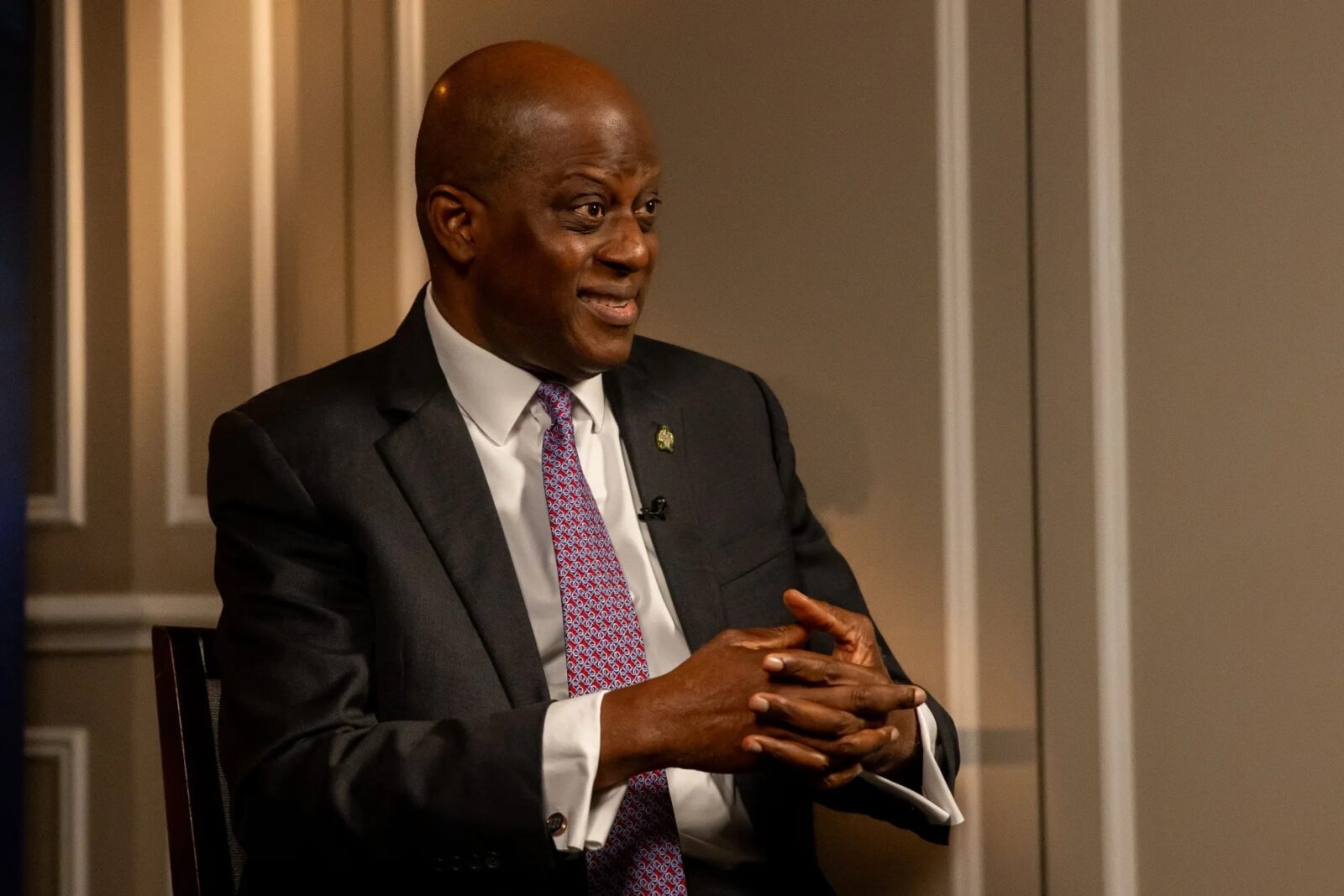By Chinwendu Obienyi
In the eye of Nigeria’s ongoing economic storm, the Central Bank of Nigeria (CBN) is choosing caution over impulse, signaling a steady hand in its war against inflation.
At the conclusion of its July 2025 Monetary Policy Committee (MPC) meeting, the apex bank voted to retain the Monetary Policy Rate (MPR) at 27.5 per cent for the third consecutive time in the year.
It was a firm decision in uncertain times. With inflation still a bit elevated, currency pressures lurking and global risks clouding economic visibility, the CBN appears focused on one goal, which is to build a foundation of resolve and stability before considering a policy pivot.
At the same time, the committee retained all other parameters – Cash Reserve Requirement (CRR) for Deposit Money Banks (DMBs) and Merchant Banks at 50.0 per cent and 16.0 per cent, respectively; the asymmetric corridor around the MPR at +500bps/-100bps and the liquidity ratio at 30.0 per cent.
This firm stance, according to the CBN, is aimed at consolidating the disinflation process, curbing price growth that has gripped Nigerian households and businesses since 2022.
According to data released by the National Bureau of Statistics (NBS), the country’s headline inflation eased by 75bps to 22.22 per cent year-on-year (y/y) in June as against the previous figure of 22.97 per cent recorded in May.
Disaggregating the data, food inflation accelerated by 83bps to 21.97 per cent y/y, while core inflation rose by 48bps to 22.26 per cent y/y. On a monthly basis, headline inflation increased by 15bps to 1.68 per cent m/m in June as against 1.53 per cent m/m.
Food inflation extended its upward trend for the second consecutive month, rising by 107bps to 3.25 per cent m/m (May: 2.19 per cent m/m). A closer look shows a sharp rise in the Imported Food sub-basket (+4.10per cent m/m vs. May: -1.45 per cent m/m), while prices in the farm produce category declined (-35.63 per cent m/m vs. May: +22.38 per cent m/m).
Elsewhere, core inflation rose by 136bps to 2.46 per cent m/m, hitting a three-month high. The uptick was driven by price increases across key components, including Transport (+231bps to 2.04 per cent m/m), ICT (+112bps to 2.72 per cent), Alcoholic Beverages and Tobacco (+81bps to 0.93 per cent m/m), Furnishings & Household Equipment Maintenance (+73bps to 1.56 per cent m/m), Insurance & Financial Services (+72bps to 1.54 per cent m/m), and Recreation and Culture (+6bps to 0.41 per cent m/m).
Briefing newsmen at the end of the meeting, CBN Governor, Olayemi Cardoso said the committee’s decision reflects the bank’s determination to sustain the recent dis-inflation trend and anchor inflation expectations.
He added that while inflation remains elevated, the MPC believes that with continued policy tightening and improved fiscal coordination, Nigeria could return to single-digit inflation in the medium term.
“Maintaining the current policy stance will continue to address the existing and emerging inflationary pressure. The MPC will continue to undertake rigorous assessment of economic conditions, price development and outlook to inform future policy decisions.
There are projections which indicate a further decline in inflation in the coming months, underpinned by the current tight monetary policy stance, stable exchange rate, declining PMS prices and moderation in food prices as the harvest season approaches, given the persistent uncertainty in the policy environment and underlying price pressures. This means that monetary policy will need to maintain its current stance until risk to inflation recedes sufficiently”, Cardoso stated.
Highlighting the ongoing risks to Nigeria’s inflation outlook, including global geopolitical tensions and the tariff war among major economies, the CBN Governor said the risk is likely to continue disrupting supply chains and exert upward pressure on the cost of imported goods.
He warned that any premature loosening of monetary policy could undo fragile gains, reintroduce volatility, and worsen price instability. This therefore meant that the battle against inflation is not just about interest rates, it is also about fixing long-term structural bottlenecks.
Beyond inflation, the CBN also has one eye firmly on the foreign exchange (FX) market. Since major reforms in 2023, the naira has at least experienced relative stability in the official market, partly due to improved inflows and attractive returns on OMO (Open Market Operations) bills.
However, high interest rates have come at a cost. Loans for homes, cars, and small businesses remain expensive. But for policymakers, that is the trade-off for macroeconomic stability.
The CBN is wagering that anchoring inflation expectations, stabilizing the naira, and building investor confidence will eventually provide the right conditions for inclusive and sustainable growth. Until then, businesses may need to hold off on aggressive expansion, while consumers continue to navigate tight financial conditions.
Experts’ views
While there are faint whispers in some quarters for rate cuts to stimulate credit and investment, analysts say the CBN is unlikely to ease policy until inflation shows a clear and sustained downward trend.
Founder, Cowry Asset Management Limited, Johnson Chukwu, noted that If headline inflation and key CPI sub-components remain volatile without a sustained disinflationary pattern and global trade tensions persist, the committee is likely to keep the MPR unchanged in the near term. “In essence, unless inflation falls convincingly and structural reforms yield results, the policy pause is likely to stay in place for the rest of the year”, Chukwu said.
Head, Research at FBNQuest Merchant Bank, Tunde Abidoye, while concurring with the committee’s decision to hold rates, noted that there is a need to protect exchange rate stability.
He said, “Given the critical role of offshore inflows in sustaining FX liquidity, a premature rate cut could erode the yield advantage of domestic assets. That could trigger capital flow reversals and reintroduce pressure on the naira.”
Echoing this, analysts at Coronation Research warned that a sudden rate cut would make Nigeria’s assets less attractive to foreign portfolio investors (FPIs), who are currently supporting FX stability through their participation in domestic debt markets.
“Inflation remains well above target and underlying pressures persist. Core and food inflation are still high, reflecting structural issues (such as unstable grid provided electricity and insecurity in farming areas). Given these concerns, MPC members emphasized the need to sustain a tight stance for the moment”, they said.
Conclusion
With inflation still raging but showing early signs of retreat, the Central Bank’s stance reflects a deeper strategic calculus that it is not just managing numbers, it is defending credibility, investor trust, and economic resilience. Whether this strategy will ultimately deliver lower inflation and robust growth remains to be seen. But for now, Nigeria’s apex bank is standing its ground with eyes fixed on the long road ahead.


















Leave a comment